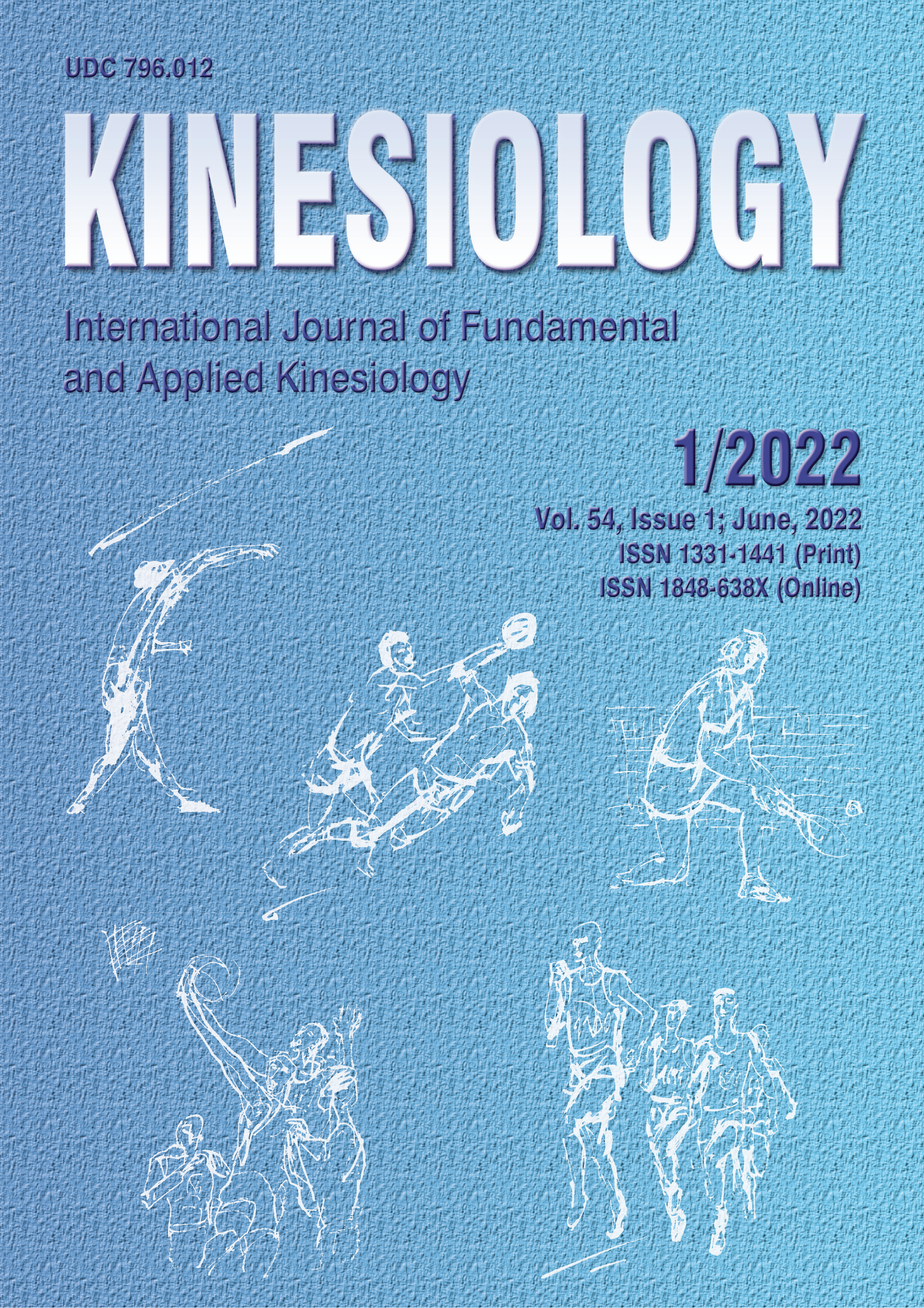CHANGES IN QUALITY OF LIFE, STRENGTH AND HEART RATE VARIABILITY AFTER 4-WEEKS OF SUPERVISED ONLINE BURPEES TRAINING DURING THE COVID-19 QUARANTINE IN HEALTHY YOUNG ADULTS: A PILOT STUDY
Abstract
In order to maintain physical fitness during the COVID-19 quarantine, we designed a short-term intervention with one body-weight exercise – burpees. Thus, the aim of this study was to understand level of feasibility and potential benefits of our protocol to different variables in young adults during the COVID-19 quarantine. An online 4-week intervention was administered to 13 young adults (age 22.5±1.39 years, weight 71.8±10.1 kg). The main phase of each session consisted of burpees, a calisthenics body-weight exercises. The training was administered daily. Data regarding quality of life (QoL), body composition, posture, heart rate variability (HRV), cardiovascular health, and strength were collected before and after the intervention period. Participants’ QoL significantly increased after four weeks (p=.025). Also, participants’ strength improved, assessed by the push-up test (p=.017). Systolic blood pressure showed no difference between the pre- and post-measures, while a significant reduction was found in diastolic blood pressure. The HRV assessment showed increased mean RR (p=.005) and RMSSD (p=.014) and decreased mean HR (p=.004) (in the time domain). For the frequency-domain variables, no significant difference was found. No significant changes were noted in body composition, posture, handgrip strength and countermovement squat jump height. Our preliminary results suggest that the 4-week daily online burpees intervention is a feasible method that could improve QoL, upper body strength and HRV in young adults. This non-time-consuming approach could be easily administered to promote healthy living and counteract physical inactivity during COVID-19 restrictions thanks to its feasibility, short duration, and low cost.
Key words: Exercise, Coronavirus, Internet-Based Intervention, Health Promotion
Downloads
Published
How to Cite
Issue
Section
License

This work is licensed under a Creative Commons Attribution-NonCommercial 4.0 International License.
At Faculty of Kinesiology we recognize that access to quality research is vital to the scientific community and beyond. Kinesiology is non-profit journal and all costs of publishing and peer review process are covered by the publisher itself or other funding sources like Ministry of Science and Education of the Republic of Croatia. Full text papers are also available free of charge at http://hrcak.srce.hr/kineziologija. There are no restrictions on self archiving of any form of paper (preprint, postprint and publisher's version).
Articles are distributed under the terms of the CC BY - NC 4.0
Kinesiology does not charge any fees to authors to submit or publish articles in our journal.


